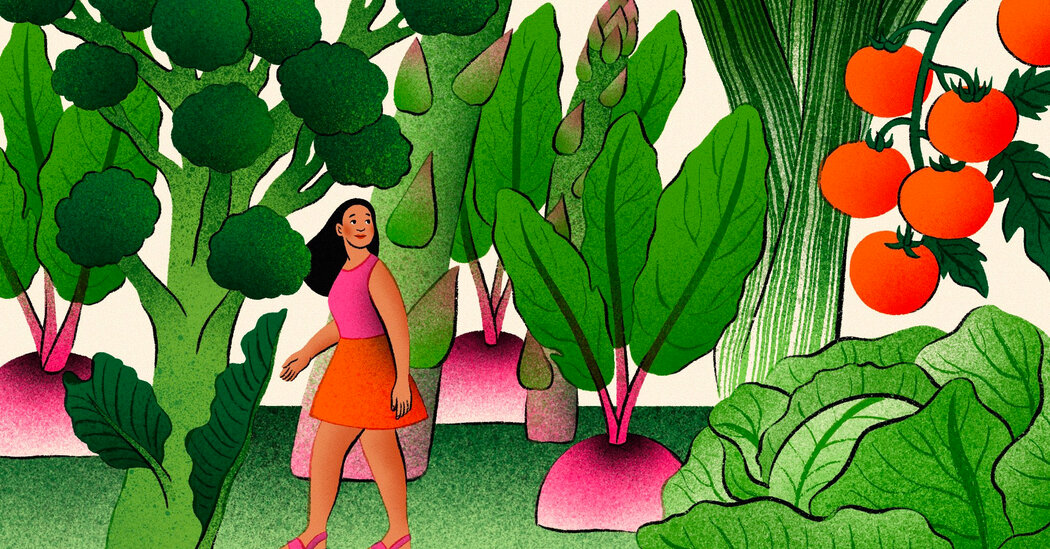If you’re looking to freshen up your eating habits, summer is the season to do it. Farmers’ markets are packed. Backyard grills are firing up. Picnic blankets are being rolled out. And school pick-ups have ground to a halt, giving us more time to cook and enjoy relaxed outdoor meals with friends.
Whatever your nutrition goals, you’re sure to find a few nuggets of wisdom in some of our favorite nutrition articles of 2024, whether it’s learning to take the latest TikTok health tip with a grain of salt or actually cutting back on salt.
Here are 10 important nutrition tips from the past year.
1. It might be worth trying a Mediterranean diet.
There’s a reason the Mediterranean diet is so beloved by nutritionists: Decades of research have linked it to a variety of health benefits, including a lower risk of heart disease, type 2 diabetes, cognitive decline, and certain types of cancer. Best of all, it’s not a “diet” in the colloquial sense of the word: There’s no counting calories or cutting out foods.
2. A glass of wine a day doesn’t keep the doctor away.
A few decades ago, it was common knowledge that a glass or two of red wine a day was good for your heart. It was an appealing idea, backed by research at the time. But the science has changed since then, experts say, and the latest evidence suggests that the risks of drinking alcohol — including red wine — outweigh any potential benefits.
3. Avocados really are that healthy for you.
Whether they complement a grain bowl or brighten up a salad, avocados are a nutritional powerhouse. They’re rich in heart-healthy fats and fiber, as well as vitamin E (essential for healthy skin) and potassium (helpful for controlling blood pressure). If you haven’t considered incorporating avocados into your meal rotation yet, what are you waiting for?
4. Don’t fall for the myth that you should delay your morning coffee.
Some online influencers claim that avoiding caffeine for the first hour or two of the day will help you wake up more naturally and avoid the afternoon slump. But experts say the science to support this strategy is thin. And for people in certain professions, delaying your morning caffeine fix may even carry some risks.
5. Americans love shrimp, but finding the healthiest and most sustainable shellfish isn’t easy.
Nutritionally, shrimp isn’t a bad choice: it’s high in protein, calcium, and vitamin B12, and low in unhealthy saturated fats. But both farmed and wild-caught versions can pose environmental and human rights issues, and some imported shrimp have been found to contain illegal substances like banned antibiotics and unlabeled preservatives. So how do you find the best shrimp for you and the environment? We’ve got some guidelines.
6. It will probably be better for you to eat less sodium.
In recent decades, researchers have debated how much sodium is really too much, with some arguing that federal guidelines may be too strict.
But the latest science is clear: Most people in the United States consume far more sodium than the recommended amount. And it pays to keep an eye on your intake — aim for no more than 2,300 milligrams a day — especially if you have high blood pressure or are concerned about heart disease. (Think you can identify the saltiest foods? Take our quiz.)
7. Apple cider vinegar isn’t a miracle cure, but it may have some surprising benefits.
Scroll through social media and you’ll find a laundry list of health conditions that apple cider vinegar is supposedly designed to treat. Some online proponents claim it can calm your stomach, lower your blood sugar, clear up acne, help you lose weight, and more. While most of these claims aren’t backed by science, some research suggests there may be some benefits to consuming this pungent kitchen staple.
8. When treating IBS, your diet can be as important as medication.
Irritable bowel syndrome is a common and debilitating condition, with telltale signs including abdominal pain, bloating, diarrhea, and constipation. The gold standard treatment is the low-FODMAP diet. This involves avoiding foods like wheat products, legumes, some nuts, certain sweeteners, most dairy products, and many fruits and vegetables, at least temporarily.
9. You don’t have to drink a liter of water every day to stay hydrated.
Oversized Stanley cups have become popular fashion accessories, but there’s no need to drink water all day long, experts say. How much water you need depends on your activity level, the temperature, your age and more. How do you know if you’re drinking enough? Here’s what experts told us.
10. There is mounting evidence against ultra-processed foods.
You’ve probably seen the headlines: Eating too many processed foods, such as sugary sodas, processed meats, salty snacks and frozen dinners, can increase your risk of health problems like heart disease, type 2 diabetes, obesity and certain gastrointestinal diseases.
Experts are still trying to understand how, or even if, ultra-processed foods directly cause ill health. But in the meantime, it’s best to cut back when you can, they say.
